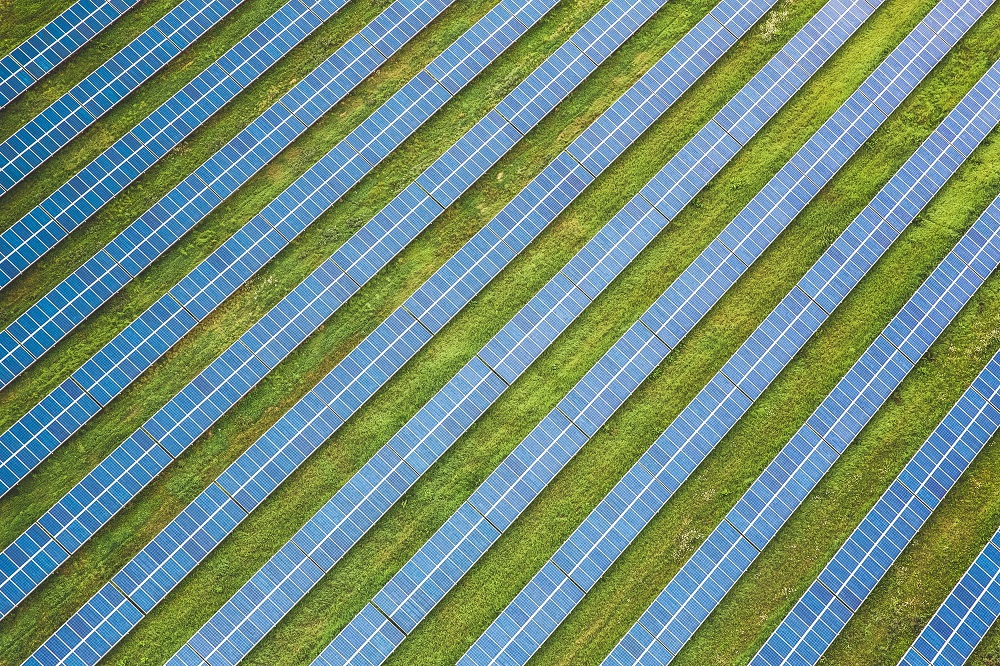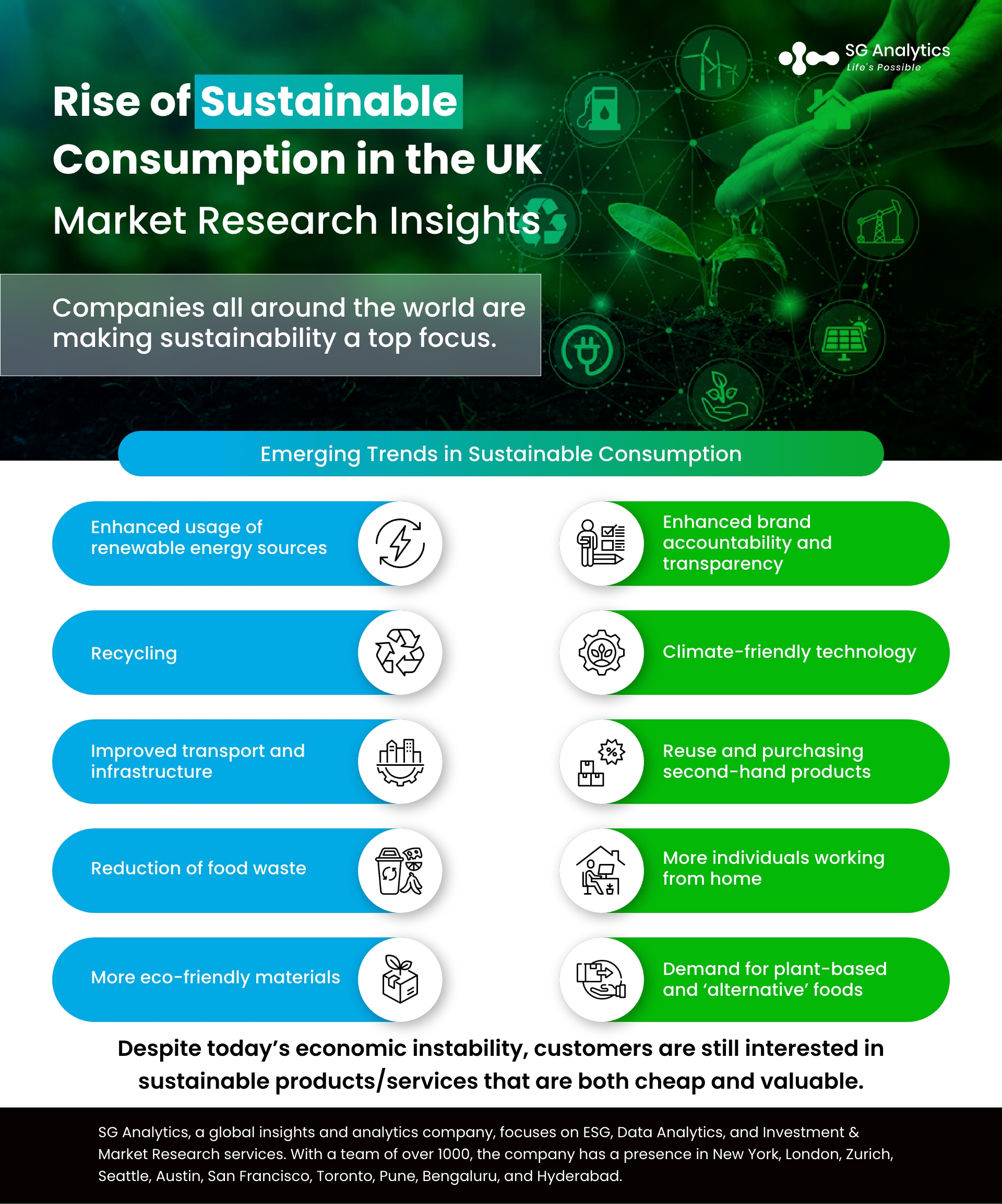The increasingly hazardous situation of our planet is making headlines on a daily basis, putting pressure on individuals and corporations to make changes; as a result, it is needed to look at the sustainability-related trends that 2023-2024 brings.
Companies all around the world are making sustainability a top focus. However, there is a wide range of consumer requirements and expectations about environmental concerns.
Consumers in many parts of the world are becoming increasingly concerned about environmental issues, but many are struggling to incorporate these concerns into their day-to-day lives. They need guidance in adopting a sustainable way of life and consumption that fits in with their busy schedules. It's important to emphasize that they also believe that manufacturers and retailers bear the primary duty of setting a sustainable example.
Unfortunately, they have various degrees of trust in these parties to deliver because of incidents of greenwashing and inaction. As sectors race to satisfy regulations and mandated sustainable efforts, we have reached a tipping point where corporations that have been proactive and sincere about climate change will have a tremendous advantage.
We expect an outbreak of activity from firms in the next decade as they try to catch up to goals that will only get tougher to achieve. The need for businesses to record and validate their footprint of emissions and resource use across their whole value chain is a paradigm changer, even if short-term gains are sought. This will call for a long-term change and, for many people, a new way of doing things.

Emerging Trends in Sustainable Consumption
Recent years have seen a tremendous rise in consumer expectations surrounding sustainable brands, often basing their purchase decisions on how eco-friendly a product or service is. Let's look at trends that will help in seeing the emerging ideas and trends in sustainability and sustainable consumption according to recent market research insights:
Enhanced Usage of Renewable Energy Sources
Although renewable energy has become more accessible in recent years, nearly every person with whom we spoke predicted a rise in 2023. Using renewable energy systems and novel technologies to create long-term energy sustainability.
By converting to a heat pump or installing solar panels, homeowners can substantially reduce not only their environmental impact but also their energy costs. It's unsurprising that a growing number of individuals are contemplating a transition, given that the cost of energy continues to wreak havoc on a global scale. Currently, the only difference between standard and low-carbon heating options is the price, but many predict that by 2023, these costs will become more comparable, thereby increasing the desire to convert to sustainable products.

Recycling
Recycling was identified by nearly all of our contributors as one of the most significant sustainability trends we will observe in 2023. Although recycling is not a new concept, and many households and businesses around the globe already recycle, it is believed that as environmental awareness grows globally, more climate action and recycling education will be incorporated into sustainability strategies.
Manufacturers and producers will contribute significantly by increasing their efforts to reduce and recycle packaging and by encouraging consumers to do the same. This will be observed in all industries, from food production to retail production.
It's not surprising that large corporations are taking steps to improve their sustainability in light of the increased demand from consumers for environmentally conscious products and brands. With a heightened awareness of recycling practices, particularly regarding plastics and packaging, optimistic developments are anticipated.
Improved Transport and infrastructure
This industry trend has been consistently developing in the majority of nations: the enhancement of sustainable transportation options. There has been a shift towards the usage of alternative modes of transportation, such as bicycles and low-emissions public transit, and, of course, the advent of electric cars and other vehicles.

Energy-efficient electric cars may be adopted more quickly in certain countries than in others, but there is no denying that they have become a regular sight on roads and highways everywhere. Many of those with whom we spoke believed that climate-friendly, sustainable transport would be an integral part of daily life in the coming year.
Reduction of food waste
Over the past decade, food waste has emerged as a major issue around the world. Increased waste volume has far-reaching consequences, such as degrading soil and water quality, releasing harmful gasses, and necessitating the construction of new landfills.
Experts in our field agree that, for environmental reasons, cutting down on food waste will be a global concern in the near future. Composting, which may be done by both enterprises and individuals, was singled out as one of the most notable developments. It's clear that composting is being promoted for all the right reasons, given that food waste is such a major global issue, and composting is a relatively simple and sustainable solution.
More eco-friendly materials
We are aware that sustainable fashion tops our trend forecasts for 2023, but our research also revealed an increase in the use of sustainable materials. This includes substituting packaging materials, apparel fibers, and even building materials with more sustainable natural resource alternatives. This can refer to either readily biodegradable or replaceable materials with minimal environmental impact.

Several of our contributors identified these changes as the future of sustainability. There are numerous examples of how scientists and manufacturers are experimenting with solutions to reduce or eliminate environmental impact. In packaging, for instance, there is a shift towards using bamboo instead of single-use plastics. In the fashion industry, bamboo, hemp, and organic cotton are increasingly preferred materials.
Enhanced Brand Accountability and Transparency
A large proportion of those with whom we spoke predicted that brands and large corporations would face increasing pressure to prioritize their environmental responsibilities and be more transparent with consumers.
Brand loyalty may be put to the test as customers demand more transparency from companies on their climate change initiatives. Major brands risk losing customers if they can't show they're doing anything about climate change or committed to more sustainable business practices.
Brands need to cater to the environmentally aware customers of the future if they want to succeed. A few examples include switching to eco-friendlier products and practices or funding awareness campaigns on climate change. It could also entail collaborating exclusively with other sustainable businesses or implementing a sustainability strategy.

Climate-friendly Technology
In a world where new technologies seem to emerge on a daily basis, it is not surprising that future climate change mitigation and sustainability support technologies will be even more advanced. The increased usage of both old and new technologies seems to be opening up possibilities for lessening our collective and individual environmental footprints.
While smart thermostats and electric vehicles were formerly seen as means by which to lessen people's impact on the environment, the present financial situation and economic instability suggest that they are being used primarily as a means by which to cut costs.
Reuse and Purchasing Second-hand Products
The practice of buying and reusing previously owned goods and resources has grown in popularity in recent years. New product manufacturing, supply chains, and distribution have less of an impact on the environment, and millions of consumers save money as a result. A pressing worry in the present circumstances.
The sustainability of the future trend is advantageous in that it may be applied to many different types of goods. The rising number of eco-conscious shoppers suggests that product recycling and reusing will gain favor in the near future. There may be a shift in consumer preferences towards brands that emphasize reuse, refurbishment, and resale.

More Individuals Work from Home
Since the beginning of the pandemic, working from home has become increasingly commonplace in the majority of businesses. Even after the pandemic, businesses all over the world continue to employ this manner of work because it offers so many advantages.
Many of our contributors assert that this low carbon trend will continue after 2023, and whether or not you're a devotee of working from home, it's undeniable that it has environmental benefits.
Since more individuals are now able to work from home, there is less need for cars and public transport, which in turn reduces emissions. Additionally, office buildings have reduced their energy use as more individuals are able to connect and store information remotely, thanks to technological advancements. A better work-life balance is fostered, which helps companies in several ways, including reducing their negative impact on the environment and making themselves more attractive to potential employees.
Demand for plant-based and 'alternative' foods
Beyond carbon reduction and health benefits, adopting a plant-based diet has a profound effect on the entire planet. Meat production practices can deplete natural resources, contaminate land, and imperil other species.

If you dislike traditional plant-based diets, however, there is some positive news. By selecting 'alternative' ingredients, you can still contribute to these efforts. The production of 'alternative' foods is on the rise, and we can anticipate seeing more of them in the future. The prevalence of 'fake' meat and cheese on supermarket shelves and restaurant menus is growing. The demand for more sustainable food options is expanding the opportunities available to food producers and consumers.
Also Read - Strategies For Success In International Market Research
Conclusions
Many of the above-mentioned sustainable trends appear to be things that people are currently experiencing in some minor way. What we should watch for are future developments in these sectors, with items such as electric automobiles, solar panels, and bamboo clothes becoming more common in our daily lives.
These are all quite encouraging developments, and if governments throughout the world adopt these reforms to any substantial degree, we may expect to see significant improvements in the health of our planet.
Despite today's economic instability, customers are still interested in sustainable products/services that are both cheap and valuable. The problem is to incorporate cost and value into your sustainability story. But it's possible to solve the problem with ease.

Quantitative & Qualitative Market Research Services to Thrive in a Customer-First and Ever-Evolving Business World. As one of the best market research companies in the UK, we provide exclusive insights to strengthen business transformation. Our market research services leverage advanced technologies to provide actionable insights into the marketplace, products, customers, and competition. SG Analytics’ market intelligence services apply robust methodologies to ensure maximum research coverage.
As a futuristic market research company in the UK, SGA incorporates advanced BI & visualization techniques to convey findings via interesting and engaging stories and captivating reports and dashboards.









